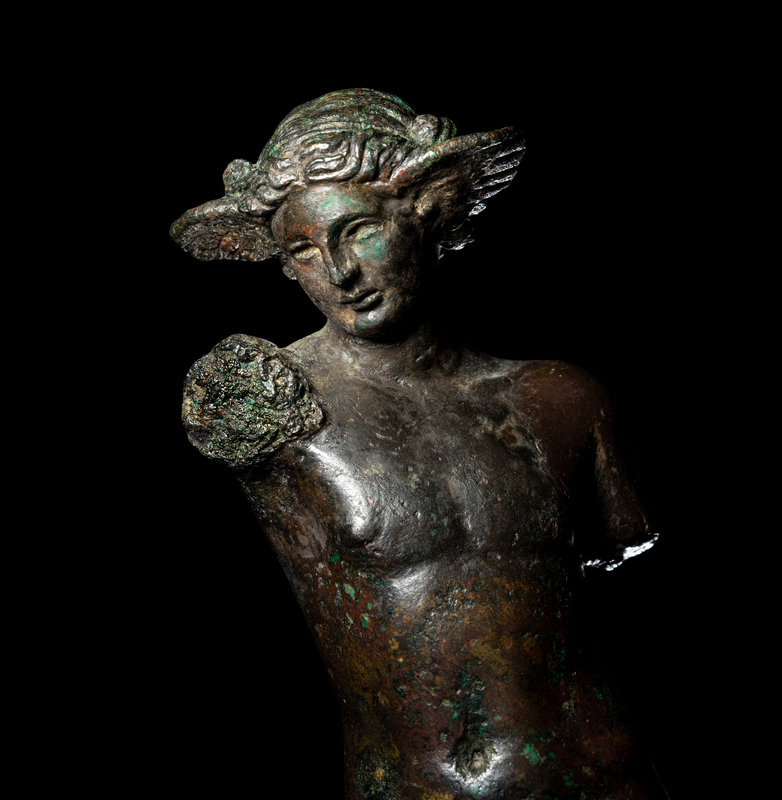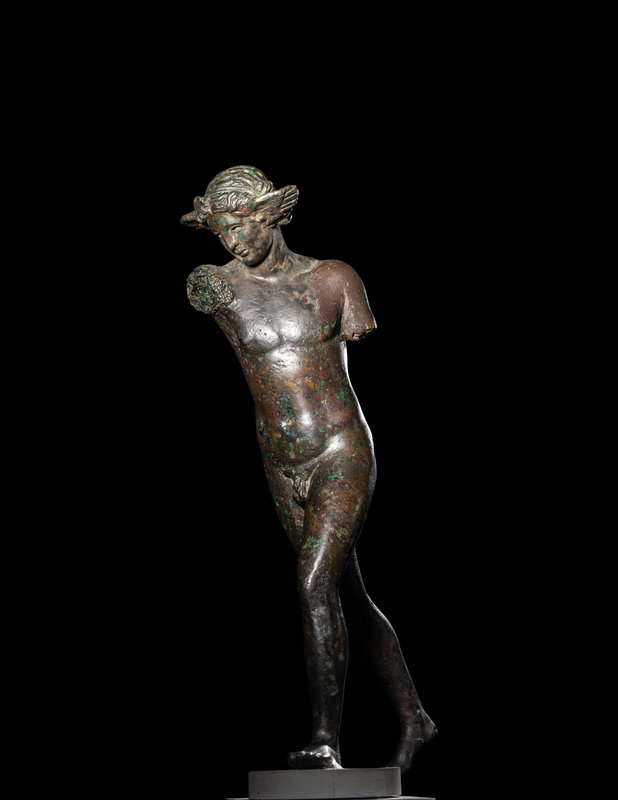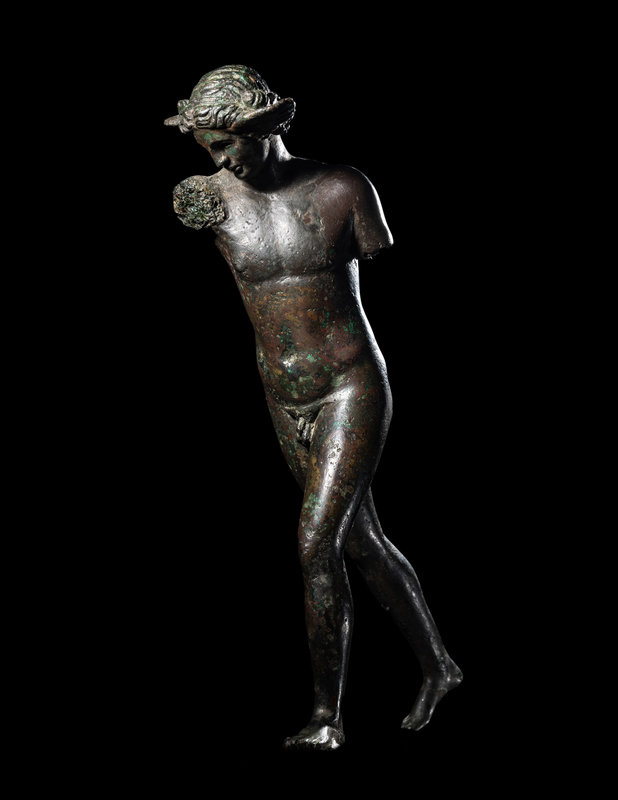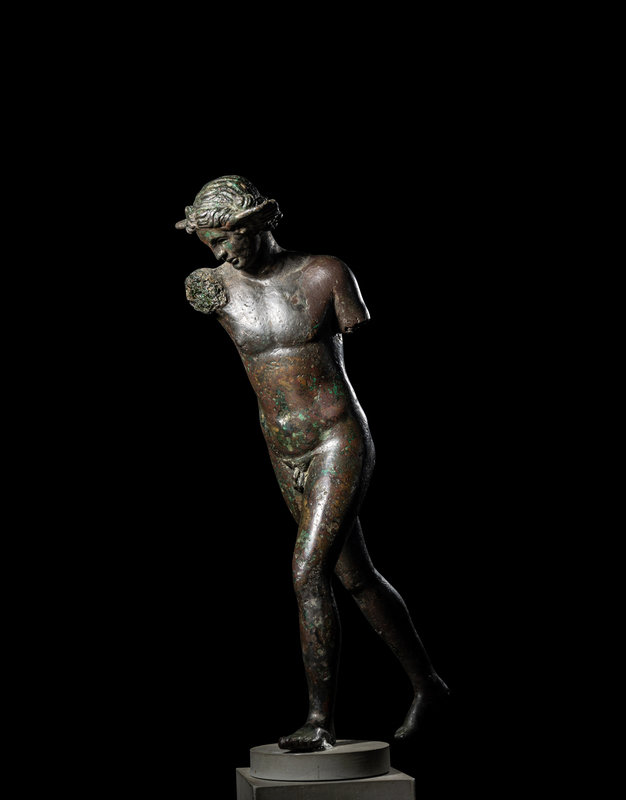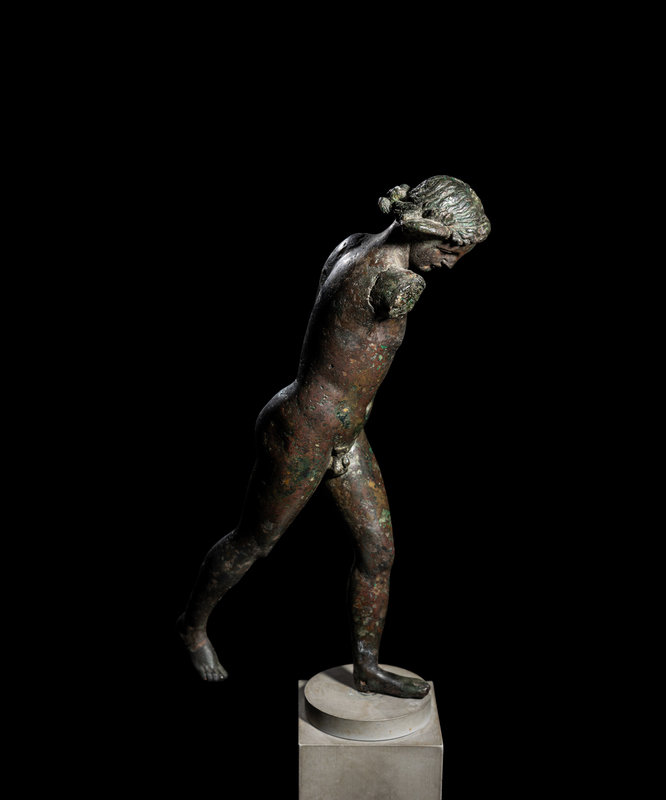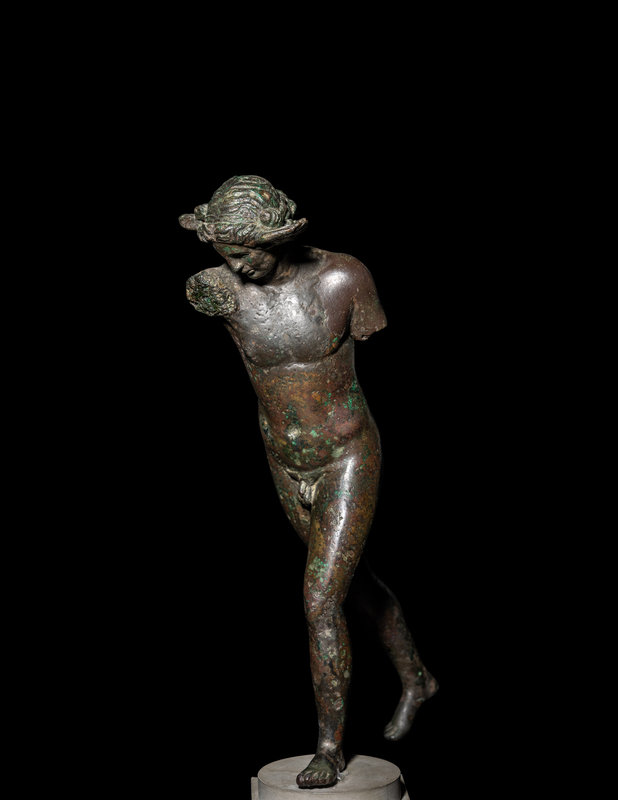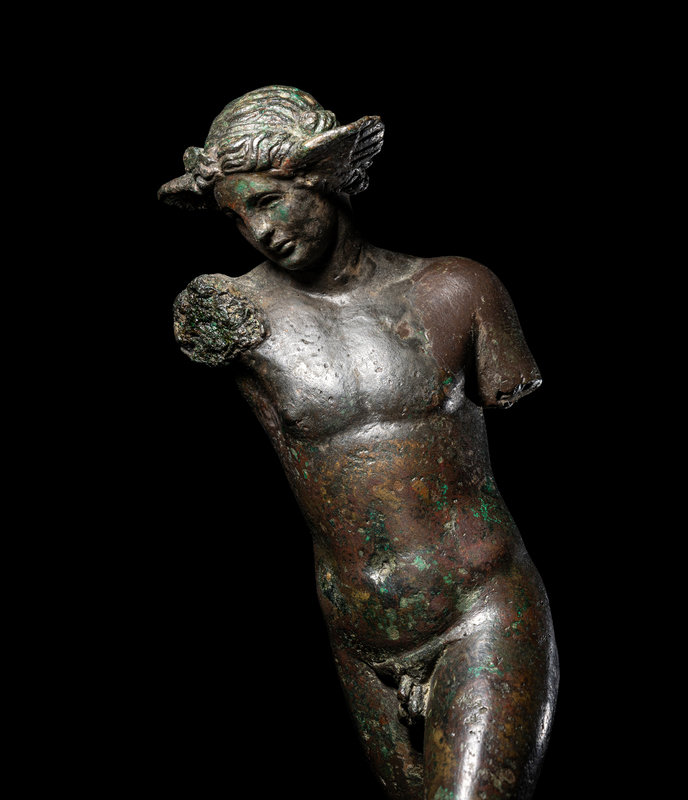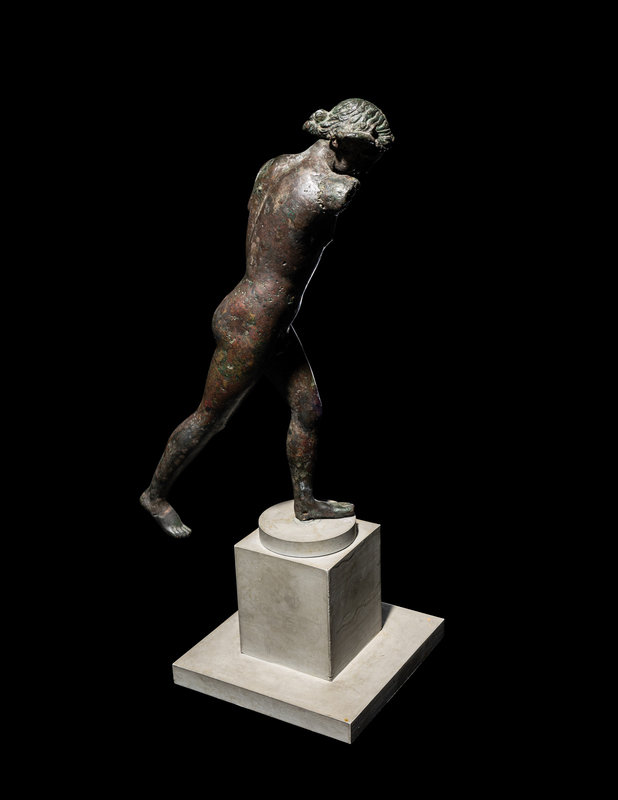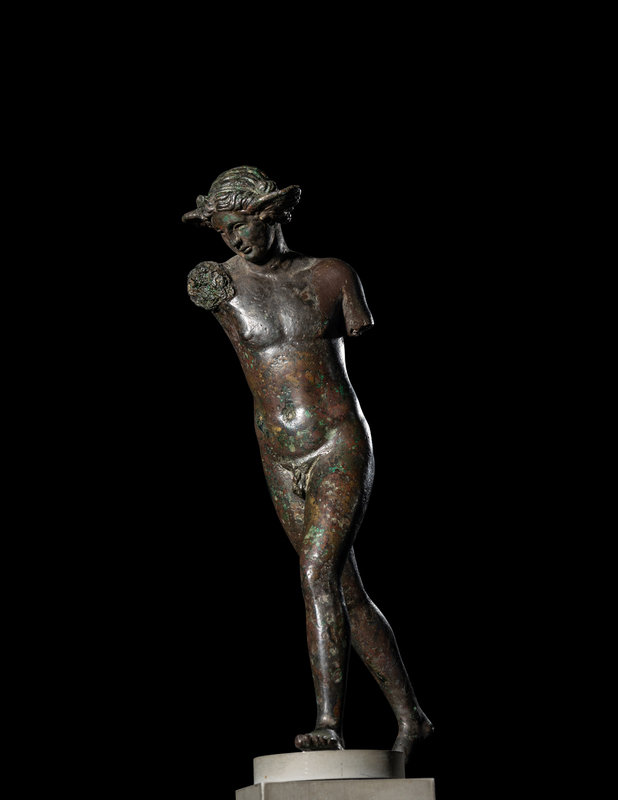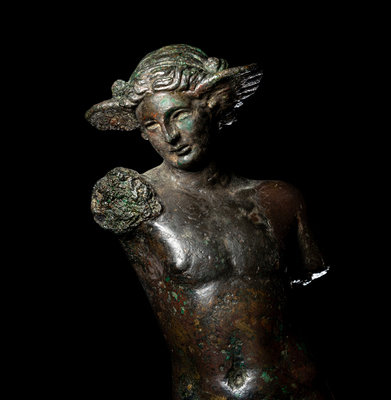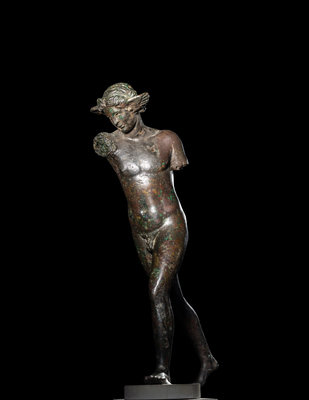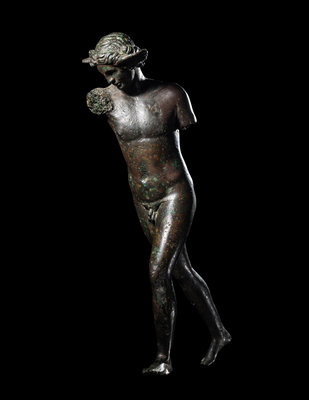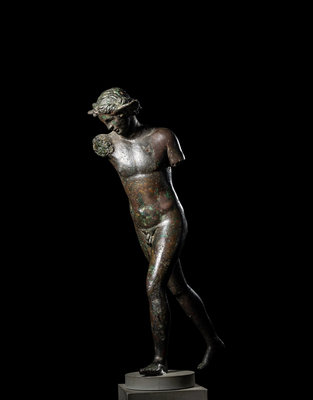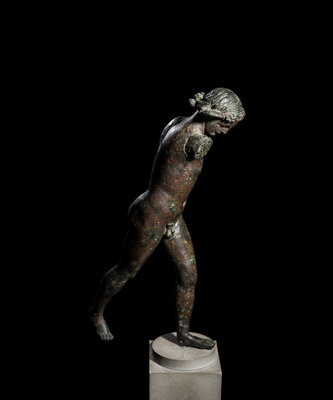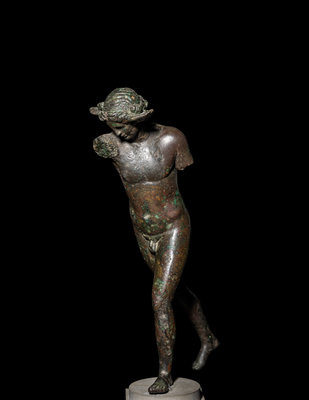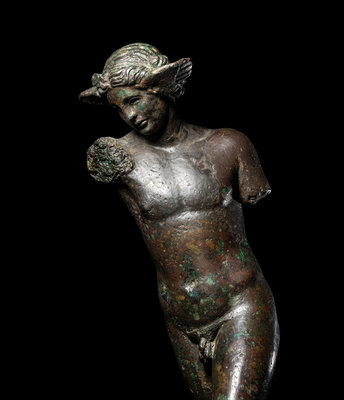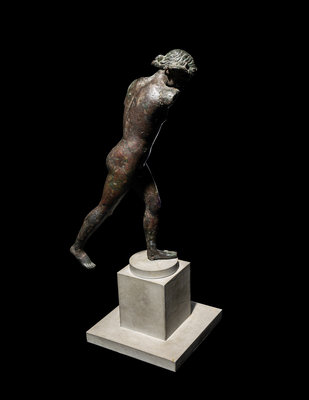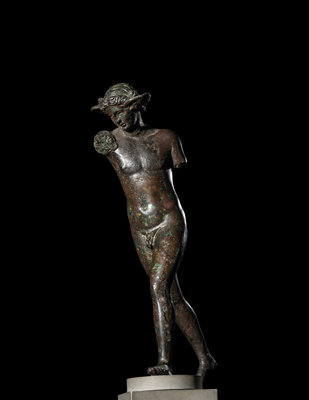Lot 15
Provenance:
Joseph Altounian, prior to 1929.
Ernest Brummer (1891-1964), Paris & New York, acquired from the above, 15 June 1929.
Ella Bache Brummer, New York, 1964-1999; thence by descent to her nephew, Dr. John Laszlo, Atlanta, Georgia.
Exhibited:
North Carolina, Chapel Hill, University of North Carolina at Chapel Hill, Small Sculptures in Bronze From the Classical World, 7 March-18 April 1976.
Published:
G.K. Sams, Small Sculptures in Bronze From the Classical World (Exhibition Catalogue), North Carolina, 1976, no. 34.
For The Brummer Gallery Records at The Metropolitan Museum Cloisters Library and Archive, see Object Inventory Card Number: P6066a [https://libmma.contentdm.oclc.org/digital/collection/p16028coll9/id/61697/rec/3]
Stepping stealthily forward, Hypnos (god of sleep) is shown as a nude adolescent with traces of childhood chubbiness still evident in his gently modeled thighs, buttocks, and pectorals. His wavy hair is pulled back from his face, tied low at the nape, and encircled by a thin fillet. Flaring wings with individually rendered feathers sprout from his temples and follow his hairline closely, serving to heighten the lightness of his approach. His face is full of benign focus and much of his weight is borne on his left foot with his torso twisting slightly to the left and down, presumably towards the prone subject of his ministrations. His now missing right arm once extended to hold a tilting horn full of soporific liquid. In his other hand, he would have held a stalk of poppy–the source of this opiate concoction. The full-scale late Classical original upon which this statuette is based is thought to have been the work of Praxiteles or Skopas. The number of extant copies in a variety of sizes is a testament to the subject’s popularity well into the Roman period.
